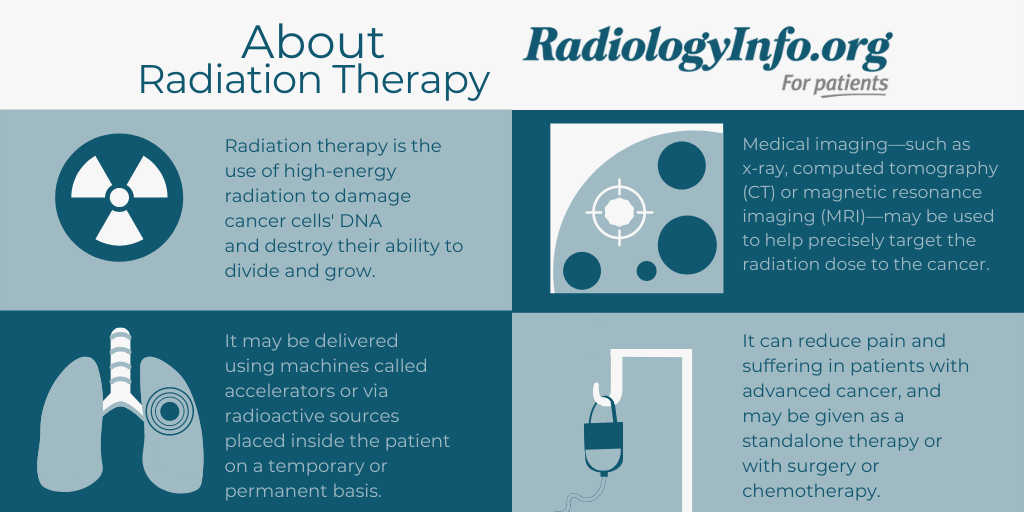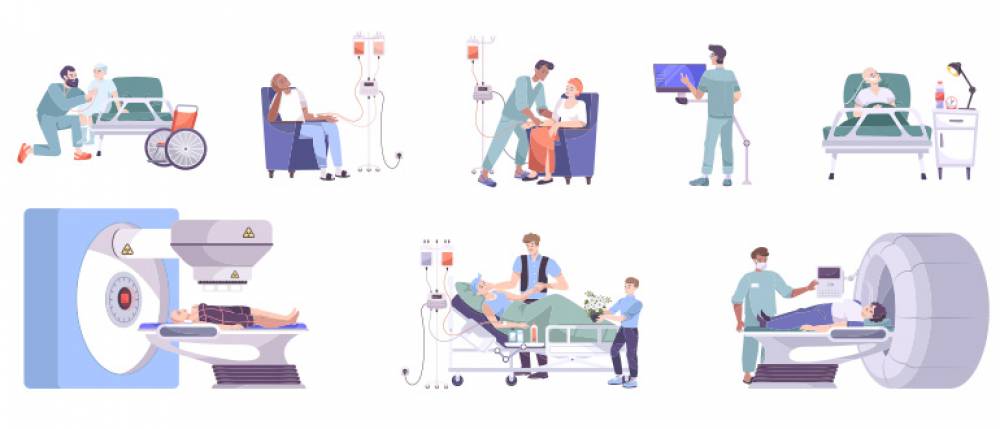The 45-Second Trick For Arogyajivan Medical Tourism For Oncology
The 45-Second Trick For Arogyajivan Medical Tourism For Oncology
Blog Article
The Best Guide To Arogyajivan Medical Tourism For Oncology
Table of ContentsThe Main Principles Of Arogyajivan Medical Tourism For Oncology Some Ideas on Arogyajivan Medical Tourism For Oncology You Should KnowUnknown Facts About Arogyajivan Medical Tourism For OncologyArogyajivan Medical Tourism For Oncology Fundamentals ExplainedSee This Report on Arogyajivan Medical Tourism For OncologyThe Greatest Guide To Arogyajivan Medical Tourism For OncologyGetting The Arogyajivan Medical Tourism For Oncology To Work
If you have cancer, your health treatment copyright will recommend one or more ways to treat the illness. Below is a review of the various treatments for cancer cells and exactly how they function.Cancer cells grow and divide faster than normal cells in the body. Because radiation is most dangerous to promptly expanding cells, radiation treatment problems cancer cells much more than normal cells. It utilizes substances made by the body or in a laboratory to aid the immune system job harder or in a more targeted means to fight cancer cells.
Some have toxins or contaminated materials affixed to them. It utilizes surgery, or medications to quit or obstruct the body's all-natural hormonal agents. This assists slow down the growth of cancer cells.
Slim fibers at the end of the tube direct the light at the cancer cells. Lasers are likewise used on the skin. Lasers are frequently made use of with various other kinds of cancer cells therapy such as radiation and radiation treatment. In photodynamic treatment, an individual obtains a shot of a medication that is delicate to an unique kind of light.
Arogyajivan Medical Tourism For Oncology Can Be Fun For Everyone

An oncologist is a cancer doctor. Advertising on our website helps support our goal. A check out to an oncologist gives you an opportunity to chat with a professional that recognizes what you're going via.
They prepare to aid, and they'll stroll with you every action of the way. Oncologists can: Run evaluates to detect cancerOffer a consultation on a previous diagnosisIdentify treatment optionsDiscuss each alternative's advantages and side effectsOversee cancer treatmentManage post-treatment treatment Seeing an oncologist does not necessarily indicate you have cancer cells. An oncologist gets included if you have symptoms that may be cancer.
The Basic Principles Of Arogyajivan Medical Tourism For Oncology
Numerous cancers cells are a lot more treatable in the early phases. Cancer is a complicated illness.
A lot of clinical oncologists likewise focus on hematology (the diagnosis and therapy of blood conditions and blood cancers). check over here These doctor use radiation treatment to deal with cancer cells. Radiation can reduce lumps prior to surgery or kill continuing to be cancer cells after surgery. You might have radiation as a stand-alone therapy or in combination with various other treatments.
Not known Incorrect Statements About Arogyajivan Medical Tourism For Oncology
Do I have cancer? Just how long have I had it? What will my life look like currently? If these are the concerns racing through your mind, you're not alone. Your oncologist is right here to help you browse these emotions. During your initial check out, your oncologist will: Ask you to describe your symptoms in see post detailDo a checkupReview your medical records, consisting of household background and any type of past or existing health and wellness conditionsRun any type of necessary examinations (like imaging examinations or laboratory job) to read more about your symptomsDetermine whether you require a biopsyWhen your oncologist collects the information they require, they'll: Discuss the results of your testsSend their findings to the doctor that referred youTell you whether you have cancer cells and if so, what kindTalk to you concerning different treatment optionsListen to your problems and anxietiesGive you sources that can provide support and extra informationYour first oncology check out may take up to 3 hours.
Oncology is the research of cancer. Specialists trained in oncology offer care for people that are at threat for cancer, being dealt with for cancer, and living with cancer cells after treatment.

Get This Report about Arogyajivan Medical Tourism For Oncology
deal with cancer cells in kids and teenagers. Some kinds of cancer cells take place most often in these younger age. When these kinds site of cancer cells sometimes happen in adults, those adult people may choose to work with a pediatric oncologist. deal with cancers cells inside the upper body area, including the lungs and esophagus. ArogyaJivan Medical Tourism for Oncology. deal with cancers in the genitourinary system, such as the bladder, kidneys, penis, prostate gland, and testicles.

In some instances, a medical oncologist could be the first expert an individual sees. In some cases when cancer cells is thought however not identified, an oncologist may likewise be entailed. Some individuals with blood problems that might or might not be cancerous may be described a hematologist oncologist. Lots of people will continue seeing their oncologist for follow-up appointments to look for signs of cancer coming back and to take care of any type of negative effects from therapy.
Everything about Arogyajivan Medical Tourism For Oncology
If you have a cancer cells diagnosis and are weighing your therapy options, take into consideration taking part in a clinical trial. They might appear daunting at first, clinical trials can be exceptionally advantageous no matter what kind or phase of cancer cells you have. Benjamin Levy, M.D., scientific supervisor of the Johns Hopkins Kimmel Cancer Facility at Sibley Memorial Health center and a lung cancer cells researcher, explains several of the reasons to sign up with a clinical trial.
Report this page